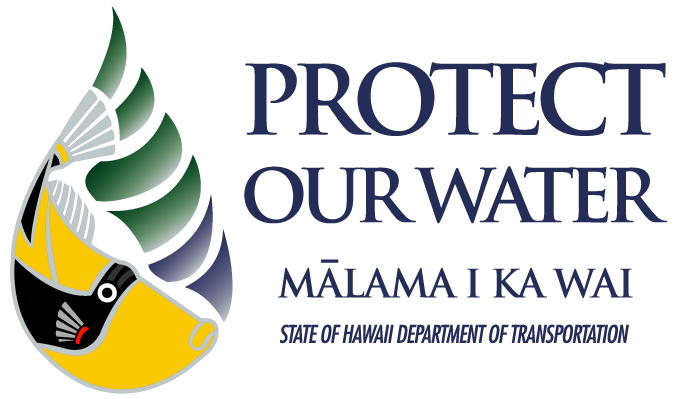The Industrial and Commercial (IC) team was put together as part of the State of Hawaii Department of Transportation (State), Highways Division’s Storm Water Management Program Plan in compliance with the State Highways Division’s National Pollutant Discharge Elimination System (NPDES) Permit No. HI S000001. Our IC team schedules storm water inspections to meet with facilities adjacent to the State right-of-way, both commercial and industrial, who have the potential to impact the State Highways Division’s Municipal Separate Storm Sewer System (MS4). Because most storm drains in Hawaii lead to the ocean, it is important for our IC inspectors to identify areas where pollutants could potentially be carried with rainfall runoff and enter the State Highways Division’s MS4. To keep track of who contributes directly to the State Highways Division’s MS4, our team makes sure that properties that initially discharge into a State Highways Division’s MS4 structure have a connection permit for physical drainage connections to the MS4, and that their drains are properly maintained. Some facilities may not have a connection permit if they initially discharge to the State Highways Division’s MS4 via surface runoff only. Industrial facilities wishing to apply for NPDES Permit coverage that discharge surface runoff to the State Highways Division’s MS4 must also apply for a discharge permit. In addition to identifying areas of potential pollutant concern, our IC team also highlights the facility’s best management practices. We find that many facilities have procedures already in place that help to mitigate their contribution to storm water pollution.
Some examples of such procedures are conducting vehicle and/or equipment maintenance activities under cover, properly storing hazardous chemicals within secondary containment, and keeping dumpster lids closed when not in use. Along with conducting IC inspections, our team also investigates illicit discharges into the State Highways Division’s MS4 through our Illicit Discharge Detection and Elimination (IDDE) program. Public complaints made to the Stormwaterhawaii.com website are very helpful in catching illicit discharges, and we encourage the public to continue to report potential storm water pollution concerns. Lastly, we make sure to provide informational handouts during our inspections because public awareness plays a key role in keeping our oceans clean.
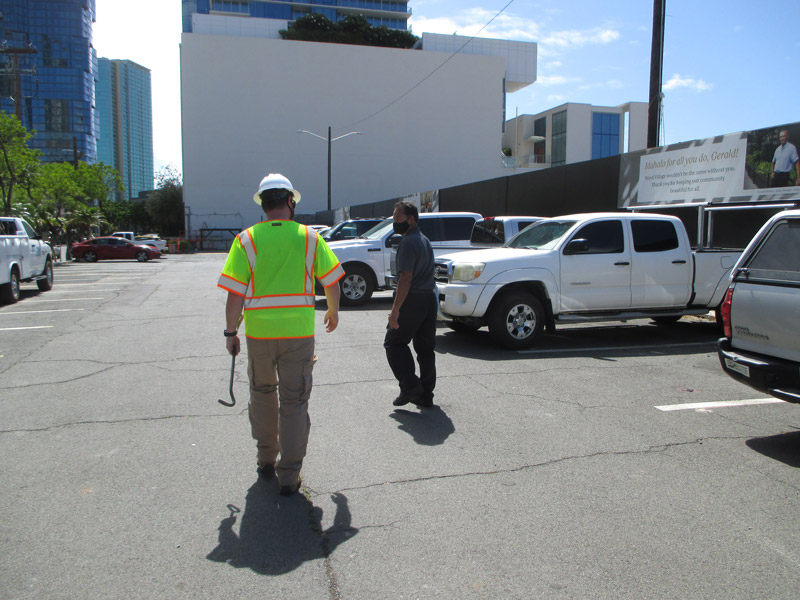
DOT HWYS inspector keeps an eye out for drains while walking through paved parking lot during an IC inspection
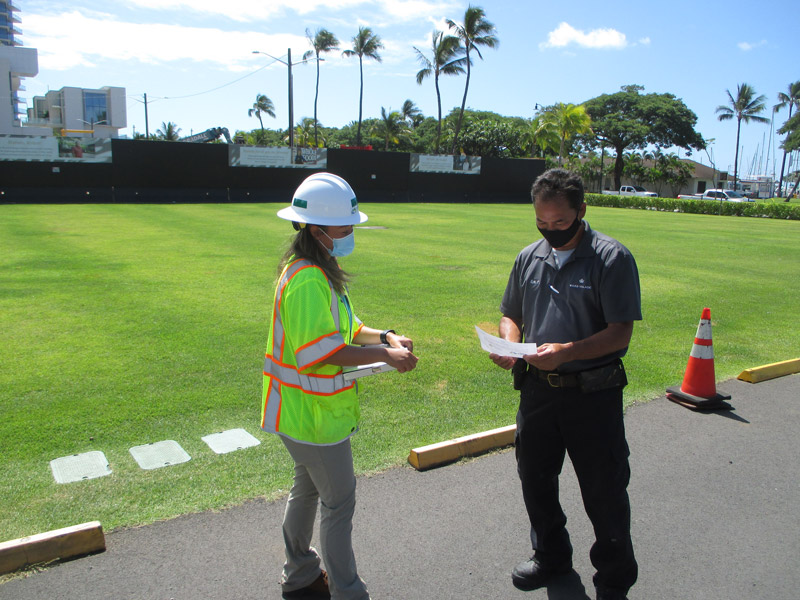
DOT HWYS inspector explains the allowable non-stormwater discharge list to facility personnel
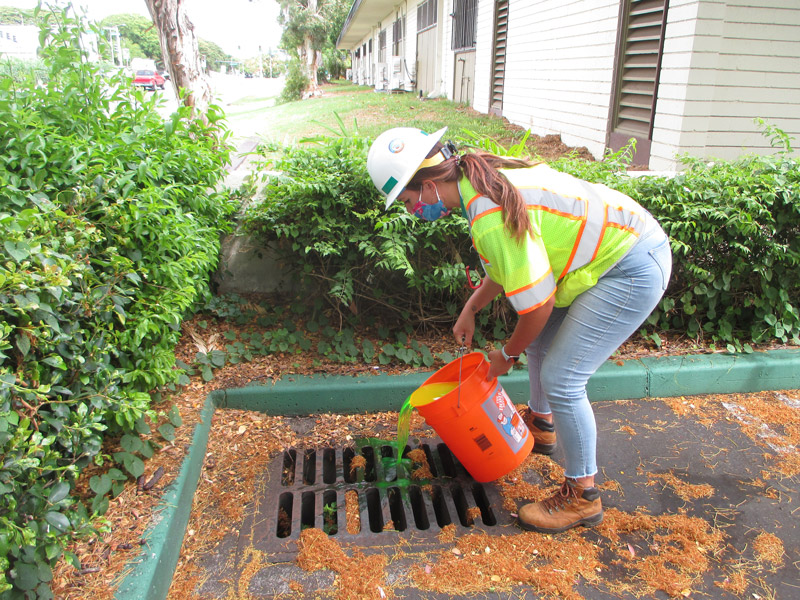
DOT HWYS inspector conducts dye test to verify drainage of a commercial property to the State Highways Division’s MS4
